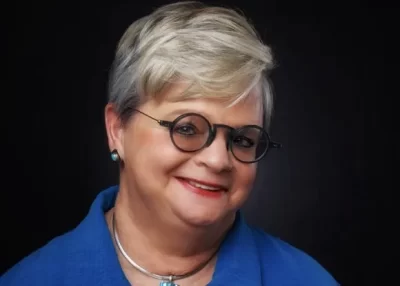Homeless Shelter in Peekskill May Soon Need New Home
News Based on facts, either observed and verified directly by the reporter, or reported and verified from knowledgeable sources.
 The only homeless shelter in northern Westchester may soon find itself without a home.
The only homeless shelter in northern Westchester may soon find itself without a home.
The clock is ticking on the Jan Peek House’s lease at 200 North Water St. in Peekskill, which expires Dec. 31.
Cynthia Knox, Chief Executive Officer (CEO) of the non-profit Caring for the Hungry and Homeless of Peekskill (CHHOP), which operates the shelter, said the landlords, Malkie and Shia Lebrecht of 200 North Water St. Equities LLC, are seeking a 12% rent increase for the 7,500-square-foot building that is rundown and in desperate need of renovations.
“I would be very surprised if a landlord would try to kick out a homeless shelter in the middle of the winter,” Knox said in a recent interview. “I don’t think the community is going to let it fail. I truly believe the community has become more and more aware of what we do. We have to continue to operate.”
Knox appeared at a Nov. 27 Peekskill Common Council meeting to inform city officials and the public of the dire situation CCHOP is facing. She said no one from city government has reached out to her since.
“My goal is engagement. I don’t think anyone believes it’s government’s role to solve everything, but hunger and homelessness is a community issue,” Knox said. “We live and hope we will have a responsive government. I do believe government has a role. I know they are supportive. I would like to see some more engagement.”
Messages left at City Hall for Peekskill Mayor Vivian McKenzie and Deputy Mayor Patricia Riley were not returned, nor was an email sent to Councilman Ramon Fernandez.
The Jan Peek shelter began in 1988 with the support of the Peekskill Area Pastors Association. Today, 40 percent of the residents are from Peekskill. The shelter is open seven days a week, 365 days of the year and offers case management, access to healthcare, education, behavioral services, employment assistance and independent living. It has a special permit for a maximum daily occupancy of 24. Clients can stay up to 30 days.
Five years ago, CCHOP set its sights on moving to a building on Washington St., but later abandoned those plans following fierce public opposition.
“That was a very painful learning experience,” Knox said. “I learned a lot. I think we have done a lot of community education and outreach since then. People were reacting with stereotypes and not personal experience. I get a lot more embracing from the community. I hear a lot of compassion and understanding.”
CCHOP then put its hopes in the hands of developer Abraham Rosenberg, who proposed building a new 20,000-square-foot shelter at 1070 Lower South St., where a recycling company operated for many years. Knox called it “our holy grail.”
However, that appears to no longer be an option with Rosenberg reportedly being served two weeks ago with a notice of foreclosure action on the property.
Rosenberg had been successful in receiving a zoning code text amendment from the Common Council last year permitting transitional housing in the M-2B zone. The owners of the shopping center on Welcher Ave. across from the proposed shelter filed a lawsuit in March seeking to overturn the Common Council’s approval of the zoning change.
Lawyers for the shopping center owners cited a decision by the state Department of Environmental Conservation in March that further investigation of possible contamination on the Lower South St. site was necessary to determine whether remediation of the ground is required. City officials settled the lawsuit last month by agreeing to reverse the zoning change.
Meanwhile, Knox noted CCHOP is also facing an obstacle with St. Peter’s Church, where Fred’s Pantry has been located since 2010.
In 2021, CCHOP served almost 61,000 individuals—a 300 percent increase from the pre-COVID-19 pandemic, forcing it to expand its distribution to two days a week. Fred’s Pantry serves more than 400 people each week, 95 percent of which reside in Peekskill or Cortlandt.
Now, Knox said the church wants Fred’s Pantry to only open on Saturdays, despite the increasing demand.
“It’s important for us to operate twice a week,” Knox said. “There’s some miscommunication from the church. We’re trying to work with them.”

Rick has more than 40 years’ experience covering local news in Westchester and Putnam counties, running the gamut from politics and crime to sports and human interest. He has been an editor at Examiner Media since 2012. Read more from Rick’s editor-author bio here. Read Rick’s work here: https://www.theexaminernews.com/author/pezzullo_rick-writer/

